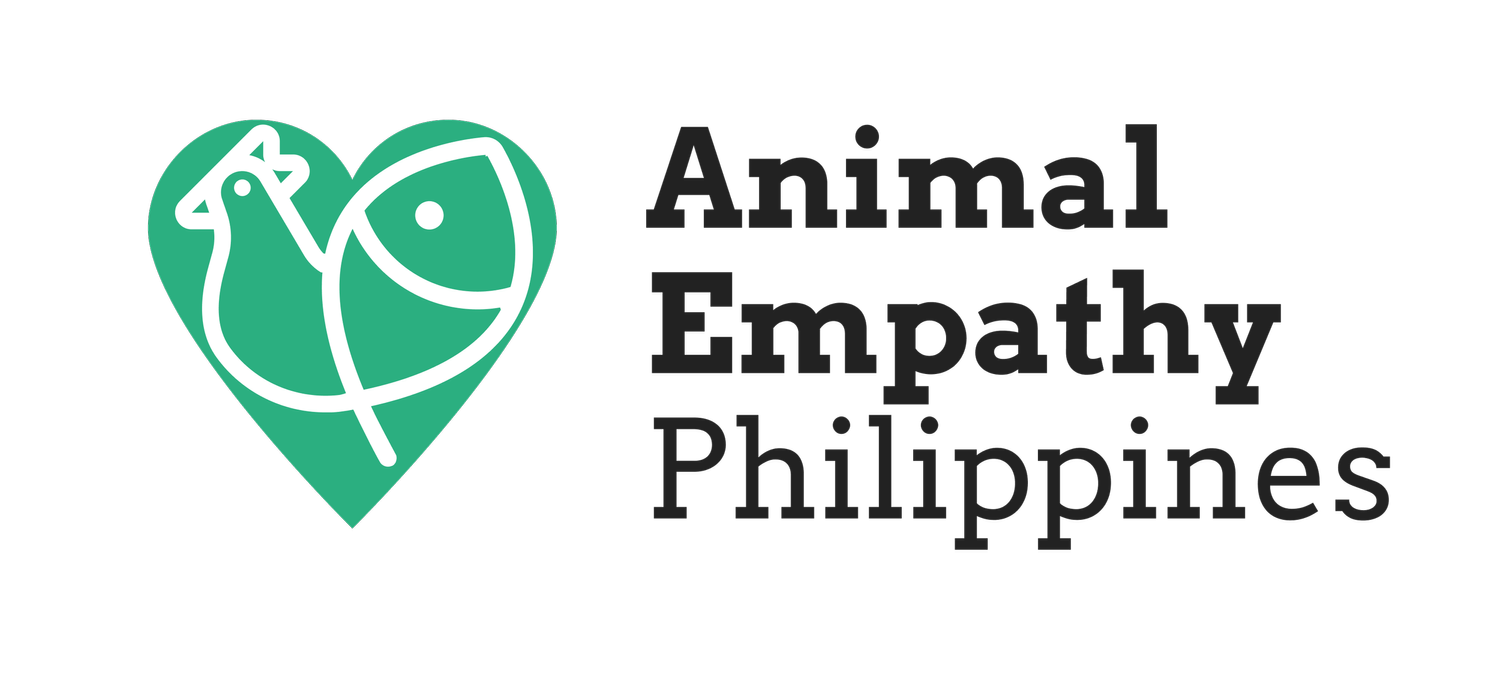Field Notes: Meeting the smallholder farmers of Pontevedra, Capiz
By Enzo Bautista
Understanding someone's experiences goes beyond mere observation; it necessitates total immersion into their realities. As an advocate for animal welfare, I've long understood the significance of not just advocating from a distance but also delving deep into the heart of the matter. Despite my dedication to these causes, I found myself relatively new to the complexities of farmed animal advocacy.
Realizing this gap in my understanding, I felt compelled to broaden my knowledge proactively. I recognized that advocating for change without firsthand insight into the industry's inner workings would inherently limit my effectiveness. Thus, I accepted the opportunity to immerse myself in the farmed animal advocacy movement, aiming to witness its realities firsthand.
The trip to Capiz served as a microcosm of the broader agricultural landscape, offering invaluable insights into the challenges encountered by animals and advocates. Being physically present allowed me to transcend mere statistics and headlines, gaining a nuanced perspective that would significantly inform my advocacy efforts.
My participation in the trip served a dual purpose: accompanying Ms. Ging Geronimo, ourDirector for Projects, and providing essential support regarding documentation and research guidance. Drawing upon my role as AEP’s Social Media Associate and leveraging my robust foundation in research methodology, I recognized my capacity to contribute substantially to the journey's objectives.
Furthermore, being in the presence of Ms. Ging, a advocate, presented an invaluable learning opportunity. Her guidance and mentorship enriched my knowledge and instilled in me a renewed sense of purpose and dedication to advocacy.
While my professional background hinted at my ability to offer substantial assistance during the trip, I understood that the experience would transcend the boundaries of my expertise. It represented a unique opportunity for personal growth and professional development, marking a pivotal moment in my ongoing journey as an advocate for animal welfare.
Throughout our trip, Mr. Jim Boy Asoy, the head of the project we were supporting, served as our gracious host, and he was an absolute delight. From the moment we arrived, he extended a warm welcome, showcasing genuine hospitality and ensuring our immersion in their perspective of the animal advocacy spectrum.
Mr. Asoy's expertise in animal husbandry shone through in our interactions. As a respected figure in their locality, he adeptly navigated discussions on animal advocacy and welfare, providing invaluable insights that complemented the mission of our organization, AEP. His commitment to advocacy mirrored our principles, making our collaboration on this project both natural and fruitful. Mr. Asoy and his family went above and beyond to ensure our comfort during our stay. They graciously provided accommodations and ensured we were well-fed, exemplifying genuine Filipino hospitality.
In addition to his hospitality, Mr. Asoy generously showed us around the area, enriching our trip with firsthand experiences of the local community and its relationship with farming and animal welfare. By providing us with a deeper understanding of the challenges farmers and animals face in the region, he transformed our trip into a meaningful exploration of work and local life.
Our encounter with the mayor of Pontevedra was a notable highlight of our trip. Despite his hectic schedule, he graciously met with us, demonstrating a genuine interest in our purpose. This allowed us to discuss the objectives of our visit, provide an overview of the GAHP project, and delve into the specifics of farmed animal advocacy and the role of AEP.
Remarkably, the mayor's background in agriculture equipped him with a deep understanding of the region's needs regarding animal welfare. He recognized the importance of initiatives that benefited farmed animals and supported the livelihoods of those reliant on them. This vision alignment served as a promising foundation for potential collaborations to advance farmed animal welfare initiatives within the community.
Witnessing firsthand how farmers tended to their pigs was genuinely enlightening. Evidently, these animals were not just commodities but were genuinely cared for and nurtured by their caretakers. While I refrain from speculating on the motivations behind such compassionate treatment, it was clear that the farmers' primary concern was the well-being and happiness of the pigs under their care.
However, there existed a noticeable disparity in the level of care provided, primarily influenced by the resources available to the caretakers. While all farmers had a basic understanding of animal husbandry, adhering to regulations posed challenges, resulting in breaches and lapses in animal welfare standards.
One of the project's key objectives was to pinpoint these gaps in animal health and welfare. The firsthand observations of backyard enclosures shed light on areas for improvement and highlighted the pressing need for interventions to enhance animal well-being.
Mr. Asoy graciously showcased his meticulously developed enclosures, setting a gold standard for pig housing. His pens were exemplified the ideal environment for pigs, with stringent measures in place to minimize disease transmission. Furthermore, his farm demonstrated sustainable waste management practices, providing hope for a future where animal suffering is minimized.
Participating in the focus group discussion was a fascinating experience. Unlike the typical approach of smaller, more manageable groups, our session involved a more extensive gathering of ten participants. This decision was made to enhance efficiency and accommodate the farmers' comfort, resulting in a lively and vibrant discussion.
Despite the language barrier, it was evident that all the farmers were deeply passionate about the well-being of their animals. While it might be easy to assume that this concern stems solely from the animals' role as a means of livelihood, the data gathered by the project suggests otherwise.
For these smaller farmers, animal husbandry appeared to be more than just a source of income—it was a tradition, a common practice, and even a passion. The pigs were treated as companion animals until reaching a critical point where economic considerations necessitated their sale. This observation underscores these farmers' genuine empathy for the animals in their care.
While further insights will be revealed in the research report, it's heartening to witness such empathy among these farmers. Despite the context of animal husbandry, there is a palpable sense of hopefulness surrounding the project. It has the potential to serve as a beacon for the future of animal advocacy in the Philippines, charting a course toward a more compassionate and ethical approach to animal welfare.
The trip to Capiz bestowed upon me invaluable insights into the intricate workings of the farmed animal advocacy movement. Engaging with myriad viewpoints and ideologies, I adeptly navigated the multifaceted nature of the issue, garnering a deeper appreciation for its nuances.
Farmed animal advocacy presents a formidable challenge on a grander scale, particularly when confronted with the realities faced by farmers and stakeholders deeply intertwined with these animals. The GAHP initiative, however, provided a window into ethical treatment practices and burgeoning developments in local advocacy, offering a promising interim solution to confront the hurdles encountered by farmed animals.
Furthermore, the trip marked a significant turning point in my dedication to animal advocacy. It reaffirmed my resolve to catalyze positive change within the industry. It underscored the paramount importance of continual learning and evolution in this sphere.
Armed with newfound knowledge and insights upon my return home, I am more resolute than ever to advocate fervently for the welfare of farmed animals. This odyssey has not only enriched my comprehension of the subject matter. Still, it has also reignited a sense of purpose within me, propelling me steadfastly to pursue substantive change.











